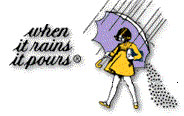Saline Injection and Salt Soaks: Difference between pages
(Page conversion via llm-mediawiki-rev -jwm) |
(Page conversion via llm-mediawiki-rev -jwm) |
||
| Line 1: | Line 1: | ||
[[File: | [[File:MortonSalt.jpg|thumb|right|]] | ||
''' | '''Salt soaks''' are one of the best things you can do for an angry or new [[Piercing|piercing]]. Many use saltwater as their only cleanser. Hot, it's a natural astringent and can be helpful in drawing out infection and pus. | ||
Most piercers prefer non-iodized sea salt, which can be found in most health-food stores. Rock salt is of higher purity than sea-salt which can contain many minerals and other substances. | |||
Some people have found that normal table salt can be an effective substitute. Epsom salts are magnesium sulfate, not sodium chloride, and should not be used. | |||
The most common mix is ¼ teaspoon salt per 8oz (250ml or 1 cup) of distilled warm water. When mixed correctly the solution should taste as salty as your tears, and be about as hot as a drinkable cup of coffee. | |||
'''To soak''' your piercing, invert a disposable cup (or shot glass) of water over the piercing and soak for 5-10 minutes. When finished soaking, it is extremely important to rinse piercing with a brand new Q-tip and cold water to remove discharge both on and around piercing and jewelry. | |||
For ear piercings, put a glass of hot salt water on the table and submerge your ear into it for 5-10 minutes. | |||
You can also make hot compresses with disposable paper towels for difficult soaking sites (i.e. inner ear or nostril piercings). Try not to put too much pressure on the piercing and do not use cotton balls, as they leave behind fibers. This method should be a "last resort" method; there is not really much reason why you can't either invert a cup of water over your piercing or submerge your piercing into the water. When you make hot compresses, it loses heat very quickly, making them useless. DO NOT use washcloths, as they harbor dangerous bacteria! | |||
Bathtub soaks are great for all piercings when done in a freshly cleaned tub with 2-3 cups of sea salt in warm water. | |||
== History == | |||
As far back as 1600 B.C., the ancient Egyptians have used salt for medicinal use. Many salt recipes were used by the Egyptians, dispensed in either liquid, suppository or ointment form. One suppository used by the Egyptians contained incense, vegetable seeds, fat, oil and ocean salt and was used against anal infections. Salt-based remedies were also prescribed to check bleeding. | |||
== External links == | |||
* [http://www.tribunes.com/tribune/sel/worm.htm A taste for salt in the history of medicine] | |||
== See Also == | |||
* [[Blue Wave Saline Spray]] | |||
* [[H2Ocean]] | |||
Latest revision as of 10:47, 17 September 2023
Salt soaks are one of the best things you can do for an angry or new piercing. Many use saltwater as their only cleanser. Hot, it's a natural astringent and can be helpful in drawing out infection and pus.
Most piercers prefer non-iodized sea salt, which can be found in most health-food stores. Rock salt is of higher purity than sea-salt which can contain many minerals and other substances.
Some people have found that normal table salt can be an effective substitute. Epsom salts are magnesium sulfate, not sodium chloride, and should not be used.
The most common mix is ¼ teaspoon salt per 8oz (250ml or 1 cup) of distilled warm water. When mixed correctly the solution should taste as salty as your tears, and be about as hot as a drinkable cup of coffee.
To soak your piercing, invert a disposable cup (or shot glass) of water over the piercing and soak for 5-10 minutes. When finished soaking, it is extremely important to rinse piercing with a brand new Q-tip and cold water to remove discharge both on and around piercing and jewelry.
For ear piercings, put a glass of hot salt water on the table and submerge your ear into it for 5-10 minutes.
You can also make hot compresses with disposable paper towels for difficult soaking sites (i.e. inner ear or nostril piercings). Try not to put too much pressure on the piercing and do not use cotton balls, as they leave behind fibers. This method should be a "last resort" method; there is not really much reason why you can't either invert a cup of water over your piercing or submerge your piercing into the water. When you make hot compresses, it loses heat very quickly, making them useless. DO NOT use washcloths, as they harbor dangerous bacteria!
Bathtub soaks are great for all piercings when done in a freshly cleaned tub with 2-3 cups of sea salt in warm water.
History
As far back as 1600 B.C., the ancient Egyptians have used salt for medicinal use. Many salt recipes were used by the Egyptians, dispensed in either liquid, suppository or ointment form. One suppository used by the Egyptians contained incense, vegetable seeds, fat, oil and ocean salt and was used against anal infections. Salt-based remedies were also prescribed to check bleeding.
